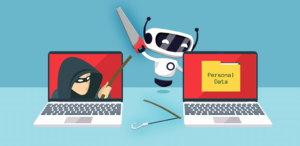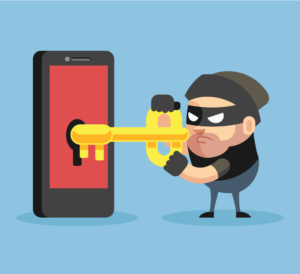Stop Getting Hacked: A Guide to Protecting Your Digital Life
Stop Getting Hacked: A Guide to Protecting Your Digital Life
In today’s digital age, the threat of hacking is a constant concern for individuals and businesses alike. Cybercriminals are becoming increasingly sophisticated, making it essential to stay vigilant and proactive in protecting your online presence. This blog will provide you with practical steps and strategies to stop getting hacked and secure your digital life.

Use Strong, Unique Passwords
A strong password is your first line of defense against hackers. Here’s how to create and manage robust passwords:
- Length and Complexity: Use passwords that are at least 12 characters long, combining letters (both uppercase and lowercase), numbers, and special characters.
- Unique Passwords: Avoid using the same password for multiple accounts. Each account should have a unique password to prevent a single breach from compromising all your accounts.
- Password Managers: Utilize a reputable password manager to generate and store complex passwords securely.

Enable Two-Factor Authentication (2FA)
Two-factor authentication adds an extra layer of security by requiring a second form of verification in addition to your password. This can be a code sent to your mobile device, a biometric scan, or a hardware token. Enable 2FA on all accounts that offer it, especially for email, banking, and social media.

Keep Software Up to Date
Software updates often include patches for security vulnerabilities that hackers can exploit. Ensure that your operating system, applications, and devices are always running the latest versions:
- Automatic Updates: Enable automatic updates whenever possible to ensure you receive the latest security patches.
- Regular Checks: Periodically check for updates manually, especially for software that does not support automatic updates.

Be Wary of Phishing Attacks
Phishing attacks involve fraudulent emails or messages designed to trick you into revealing sensitive information. To protect yourself:
- Verify Senders: Always check the sender’s email address and look for any inconsistencies or suspicious details.
- Avoid Clicking Links: Hover over links to see the actual URL before clicking. If in doubt, navigate to the website directly by typing the URL into your browser.
- Be Skeptical: Be cautious of urgent requests for personal information, and verify their authenticity through other means if necessary.

Use Secure Networks
Public Wi-Fi networks are convenient but often lack security, making it easier for hackers to intercept your data. To stay safe:
- Avoid Public Wi-Fi: Use mobile data or a secure, private network whenever possible.
- Use a VPN: A Virtual Private Network (VPN) encrypts your internet connection, providing an additional layer of security when using public networks.

Protect Your Personal Information
Be mindful of the information you share online and how it can be used against you:
- Limit Social Media Sharing: Avoid sharing sensitive information such as your home address, phone number, or travel plans on social media.
- Privacy Settings: Adjust the privacy settings on your social media accounts to control who can see your information.

Install Antivirus and Anti-Malware Software
Reliable antivirus and anti-malware software can detect and remove malicious software before it causes harm. Ensure you:
- Regular Scans: Schedule regular scans to check for and remove any potential threats.
- Real-Time Protection: Enable real-time protection to automatically detect and block malware as it arises.

Backup Your Data
Regular backups ensure that you can recover your data in the event of a cyberattack or hardware failure. Consider these backup strategies:
- Cloud Backups: Use a reputable cloud service to store copies of your important files.
- External Drives: Keep physical backups on external hard drives or USB drives, stored in a secure location.

Educate Yourself and Stay Informed
Cybersecurity is an ever-evolving field, and staying informed about the latest threats and best practices is crucial:
- Follow Cybersecurity News: Keep up with cybersecurity news from reputable sources to learn about new threats and security tips.
- Take Courses: Consider taking online courses or attending workshops on cybersecurity to deepen your understanding.

By implementing these strategies, you can significantly reduce your risk of falling victim to hacking attempts. Cybersecurity is an ongoing process that requires vigilance and proactive measures. Protecting your digital life is not just about securing your devices and accounts but also about cultivating a security-conscious mindset. Stay informed, stay cautious, and stay secure.








